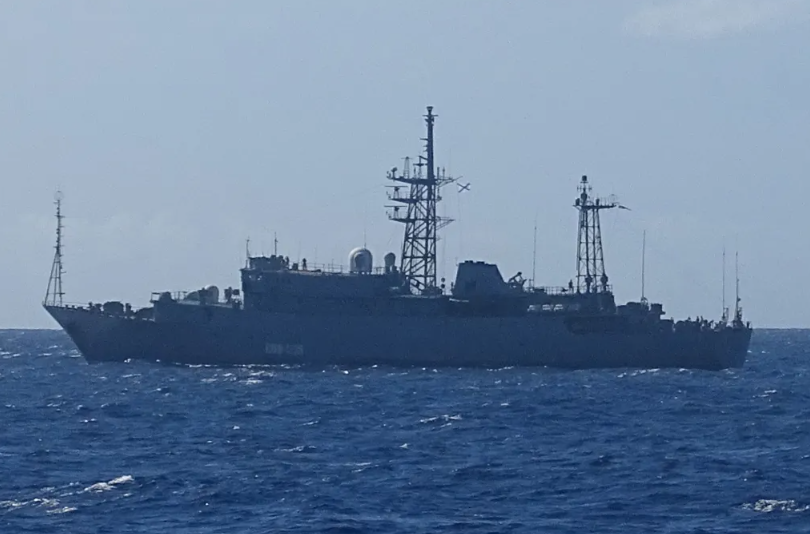In a development that echoes Cold War brinkmanship with a distinctly modern twist, the U.S. Coast Guard confirmed Thursday that it intercepted a Russian military intelligence vessel operating just outside American territorial waters near Hawaii late last month.
The incident took place on October 29, when U.S. surveillance detected the Russian ship a mere 15 miles off the coast of Oahu—just three miles beyond the 12-mile threshold that marks the boundary of U.S. sovereign waters. Though technically in international waters, the proximity of the vessel—and its purpose—has drawn scrutiny.
The ship in question, a Cold War-era Soviet-built intelligence vessel, came equipped with surface-to-air missile launchers and close-in weapon systems, raising concerns about the strategic intent of its mission. It was not there to fish.
In response, the U.S. Coast Guard launched what it described as a “safe and professional” operation, including an aerial flyover by an HC-130 Hercules aircraft and maritime tracking by the USCGC William Hart. Officials emphasized that the mission was conducted in coordination with U.S. allies and designed to assert maritime domain awareness while protecting U.S. interests.
Captain Matthew Chong of the Coast Guard's Oceania District made the implications clear: “Our crews monitor and respond to foreign military vessel activity near our territorial waters to protect our maritime borders and defend our sovereign interests.”
But the timing of this incident is notable for more than just its coordinates.
Just days earlier, President Donald Trump publicly directed the U.S. military to begin preparations for nuclear weapons system checks, hinting at underground testing by America’s global rivals. Trump pointed the finger directly at Russia and China, alleging that both nations were conducting covert nuclear tests, while the U.S. remained transparent under international scrutiny.
“Russia’s testing, and China’s testing, but they don’t talk about it,” Trump said. “We have to talk about it… We’re going to test, because they test and others test.”
Russia, for its part, denied the allegations—and issued its own veiled warning: if the United States resumes nuclear testing, they will "respond in kind."
It’s against this backdrop of escalating strategic tension that the Russian vessel’s near-incursion takes on deeper meaning. While no direct confrontation occurred, the message was unmistakable: the Pacific is no longer immune from great power gamesmanship.
The U.S. is watching—and so are its adversaries.


